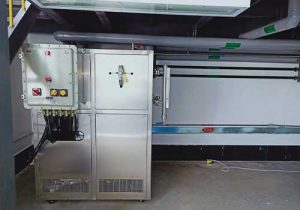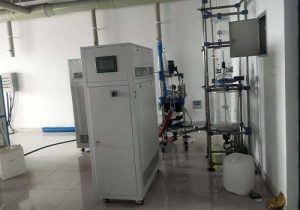custom heaters
What are Custom Heaters?
Custom heaters are heating devices engineered to meet specific operational requirements that standard heaters cannot fulfill. They are designed with unique specifications, such as size, shape, power output, and material compatibility, to ensure they perform effectively in specialized applications. Custom heaters are widely used in industries where precise temperature control and adaptability are critical.

How Do Custom Heaters Work?
The operation of custom heaters depends on their type and application, but the general working principle involves:
Heat Generation: The heater generates heat using electricity, gas, or other energy sources.
Heat Transfer: The heat is transferred to the target medium (air, liquid, or solid) through conduction, convection, or radiation.
Temperature Control: Advanced control systems regulate the temperature to ensure consistency and safety.
Application-Specific Design: The heater is tailored to fit the unique requirements of the process or environment.
Types of Custom Heaters
Custom Electric Heaters: Use electric heating elements and are ideal for applications requiring precise temperature control.
Custom Gas Heaters: Utilize natural gas or propane and are suitable for high-capacity heating needs.
Custom Immersion Heaters: Designed to heat liquids directly by being submerged in the medium.
Custom Radiant Heaters: Emit infrared radiation to heat objects or surfaces without heating the surrounding air.
Custom Process Heaters: Used in industrial processes to heat gases, liquids, or solids.

Design Considerations for Custom Heaters
Application Requirements: Understand the specific heating needs, including temperature range, heating medium, and environmental conditions.
Material Compatibility: Choose materials that are resistant to corrosion, high temperatures, and chemical reactions.
Power Output: Ensure the heater provides sufficient power to meet the heating demand.
Size and Shape: Design the heater to fit the available space and conform to the application’s geometry.
Safety Features: Incorporate safety mechanisms such as temperature sensors, overload protection, and fail-safes.
Applications of Custom Heaters
Custom heaters are used in a wide range of industries, including:
Manufacturing: Heating molds, dies, and machinery components.
Aerospace: Providing precise heating for aircraft components and testing environments.
Healthcare: Sterilizing medical equipment and maintaining controlled temperatures in laboratories.
Food Processing: Cooking, drying, and maintaining food temperatures during production.
Chemical Processing: Heating reactors, storage tanks, and pipelines.
Benefits of Using Custom Heaters
Tailored Solutions: Designed to meet specific requirements, ensuring optimal performance.
Energy Efficiency: Custom designs minimize energy waste, reducing operational costs.
Durability: Built with high-quality materials to withstand harsh conditions.
Precision: Advanced control systems ensure accurate temperature regulation.
Versatility: Suitable for a wide range of applications and industries.

Choosing the Right Custom Heater Manufacturer
When selecting a manufacturer for custom heaters, consider the following factors:
Experience and Expertise: Look for manufacturers with a proven track record in designing custom heating solutions.
Quality Standards: Ensure the manufacturer adheres to industry standards and certifications.
Customization Capabilities: Verify the manufacturer’s ability to design and produce heaters to your specifications.
Technical Support: Choose a manufacturer that offers comprehensive support, from design to installation and maintenance.
Reputation: Research customer reviews and case studies to gauge the manufacturer’s reliability.
Maintenance Tips for Custom Heaters
Regular maintenance is essential to ensure the longevity and efficiency of custom heaters. Key maintenance practices include:
Inspecting heating elements for wear and tear.
Cleaning surfaces to prevent dust and debris buildup.
Checking electrical connections and wiring for safety.
Monitoring temperature controls and recalibrating if necessary.
Scheduling professional inspections and servicing periodically.
Conclusion
Custom heaters are indispensable in industries where standard heating solutions cannot meet specific requirements. By understanding their working principles, types, and design considerations, you can select the right custom heater for your needs and ensure its optimal performance through proper maintenance. Whether for manufacturing, aerospace, healthcare, or food processing, custom heaters deliver precise, efficient, and reliable heating solutions tailored to your unique applications.
Related recommendations
heating and cooling machine
294Heating and Cooling MachinesHeating and cooling machines play a fundamental role in modern life, influencing our comfort at home, work, and in various industrial operations. They are designed to r...
View detailsHow to Choose the Right 12HP Low Temperature Water Chiller?
1445How to Choose the Right 12HP Low Temperature Water Chiller? In the process of production and experiment, sometimes users need a suitable 12hp low temperature chiller to complete the correspo...
View detailsCommon Faults and Troubleshooting Methods of Chillers
1467Common Faults and Troubleshooting Methods of Chillers First, the reasons for the failure of the chiller: The overload protector on the AC contactor of the chiller operates.The chiller cap...
View detailsindustrial water cooler manufacturers
206Industrial Water Cooler Manufacturers: A Comprehensive InsightIn the intricate web of industrial operations, maintaining optimal temperatures is crucial for the efficient and reliable functioning...
View details
 LNEYA Chiller
LNEYA Chiller







HelloPlease log in